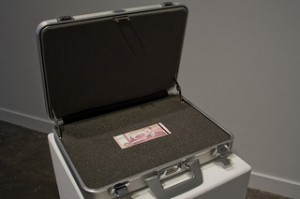The Economics of a Ransom
In The Atlantic, Megan McArdle traces the economics of ransom negotiation:
Economists would describe hostage negotiation as a bilateral monopoly price negotiation that is structurally just a special case of chicken. That is, unlike a barrel of oil or a freight car full of soybeans which can trade on an extremely liquid market with innumerable buyers and sellers, a hostage has exactly one seller (the kidnappers) and exactly one buyer (the employer and/or family of the hostage). When there is only one buyer, the opportunity cost for ransoming the hostage is zero. Likewise, the employer and/or family has no realistic alternative means to recover the hostage. In order for everybody to walk away happy, we need a cooperate-cooperate outcome: the kidnapper has to give up the hostage and the employer/family has to give up a ransom.
Here’s one big tip from the article: if you’re ever kidnapped by Somali pirates, don’t tell them how much you’re worth. It narrows the bid-ask spread.


Comments